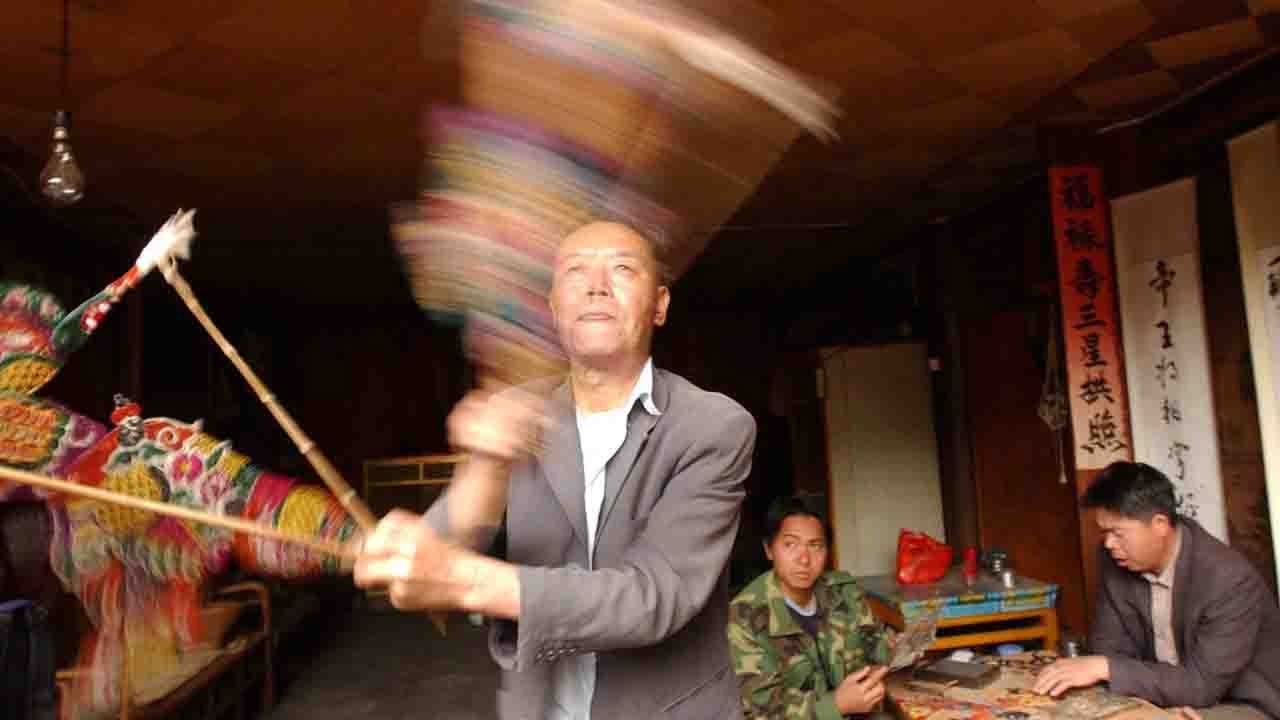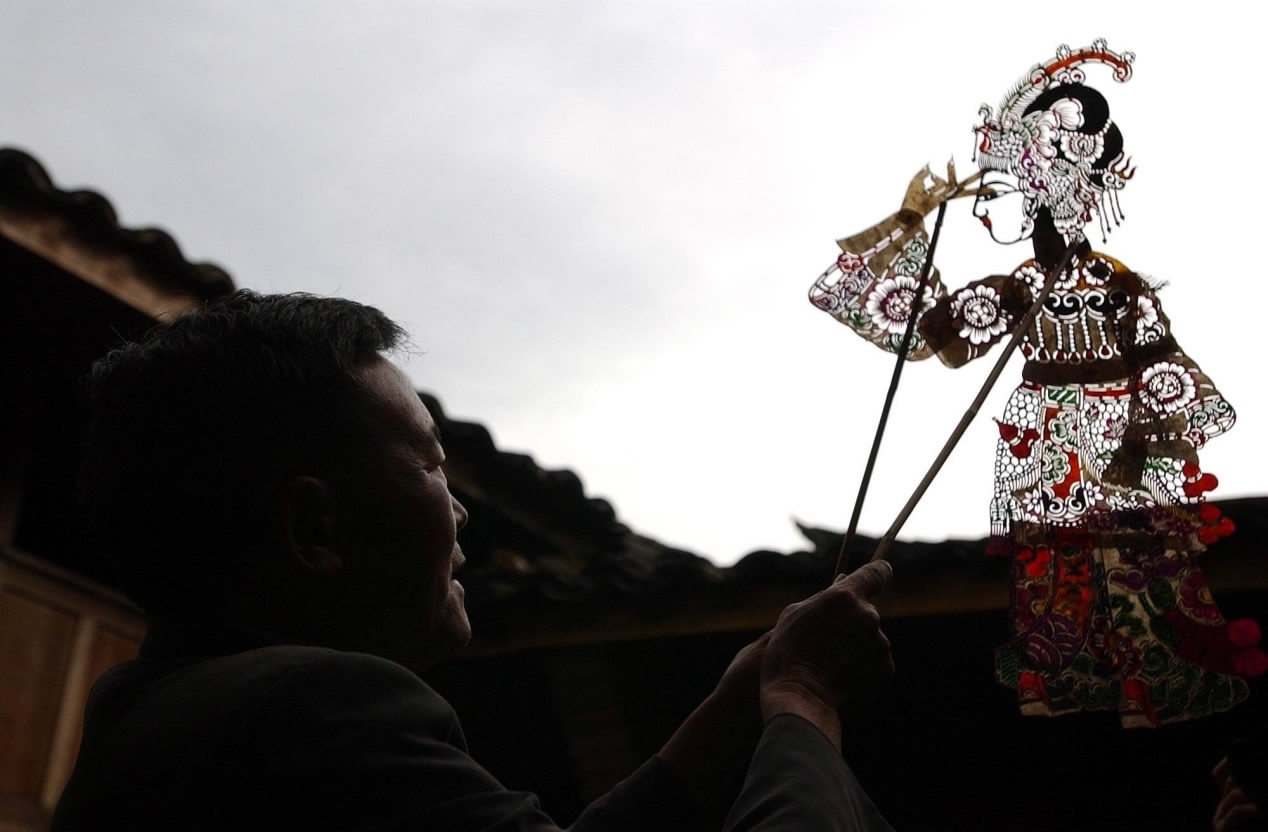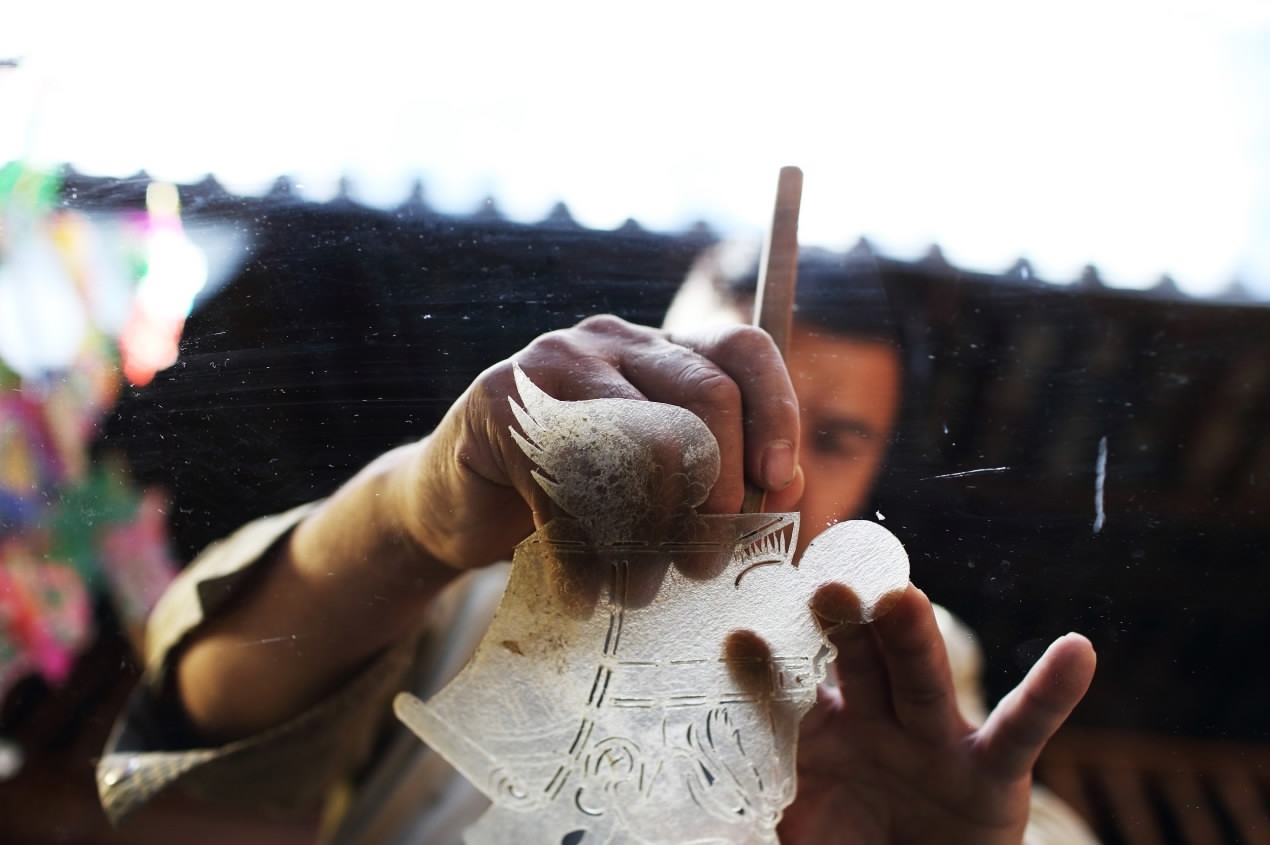
Culture & Sports
22:23, 21-Jun-2017
Ancient handicrafts and performing arts pass down in Tengchong

By CGTN's Li Qiong & Luo Chen
Shadow puppetry, also known as Piying, is one of the oldest traditional handicrafts and performing arts in the world. It is an ancient form which uses flat figures to create the impression of humans and objects.
In Tengchong of southwest China's Yunnan Province, the art form has been passed down through hundreds of years. Now even the youngest generation is encouraged to learn about the ancient handicrafts.
Local craftsman Liu Yongzhou, 71, is a fourth-generation shadow play puppet maker and performer.
Liu's shadow puppets can be regarded as a perfect combination of traditional skills and ethnic styles, presenting a vivid epitome of ethnic groups.

Tengchong Traditional Shadow Puppetry /CGTN Photo
Tengchong Traditional Shadow Puppetry /CGTN Photo
Liu and his family often invite children to their workshop to learn about the old entertainment ways.
The shadow play of Tengchong County has enjoyed a history of more than 600 years since it was introduced into Yunnan Province in the Ming Dynasty.
Traditionally, the figurines are made from high-quality cowhide, and the production process goes through six procedures including tanning, trimming, burnishing, engraving, connecting and coloring.
Tengchong shadow play figurines are double or triple the size of those elsewhere in China. So the Tengchong shadow play is nicknamed "Big Shadow Play of Yunnan."
Performed by manipulating flat leather puppets against a lit-up translucent screen, the shadow play was registered in the Representative List of the Intangible Cultural Heritage of Humanity by UNESCO in 2011.
The figurines used in the art form are delicately engraved, and they include the roles for traditional opera. Most shows of this kind are based on legends and folktales.

Tengchong Traditional Shadow Puppetry/ CGTN Photo
Tengchong Traditional Shadow Puppetry/ CGTN Photo
In Tengchong, shadow play used to be a main form of entertainment for locals in ancient times. As the years passed by, Liu Yongzhou's shadow puppet team has been left as the only one still standing. Anyone wanting a ticket to one of the shows needs to book a week in advance.
In 2016, shadow play together with puppet making was included in a tourism project by the local government. Visitors were introduced to the whole process of the ancient art form.
With more than 20 performances a month, now the workshop can make 80,000 yuan a month.
Like his grandfather Liu Yongzhou, Liu Chaokan has also been fighting to preserve this art, its use of dialect, its storytelling techniques and imagery by teaching puppeteering classes and taking in apprentices.
He says children would always be concentrated in the process.
Young or old, men and women have all been obsessed with the shadow play for centuries. For the audience, the movement behind the scene could be mysterious and the skills in making the puppets could also be an attraction. The Liu family says they are optimistic to promote the art form in the region, and outside it.
2353km

SITEMAP
Copyright © 2018 CGTN. Beijing ICP prepared NO.16065310-3
Copyright © 2018 CGTN. Beijing ICP prepared NO.16065310-3